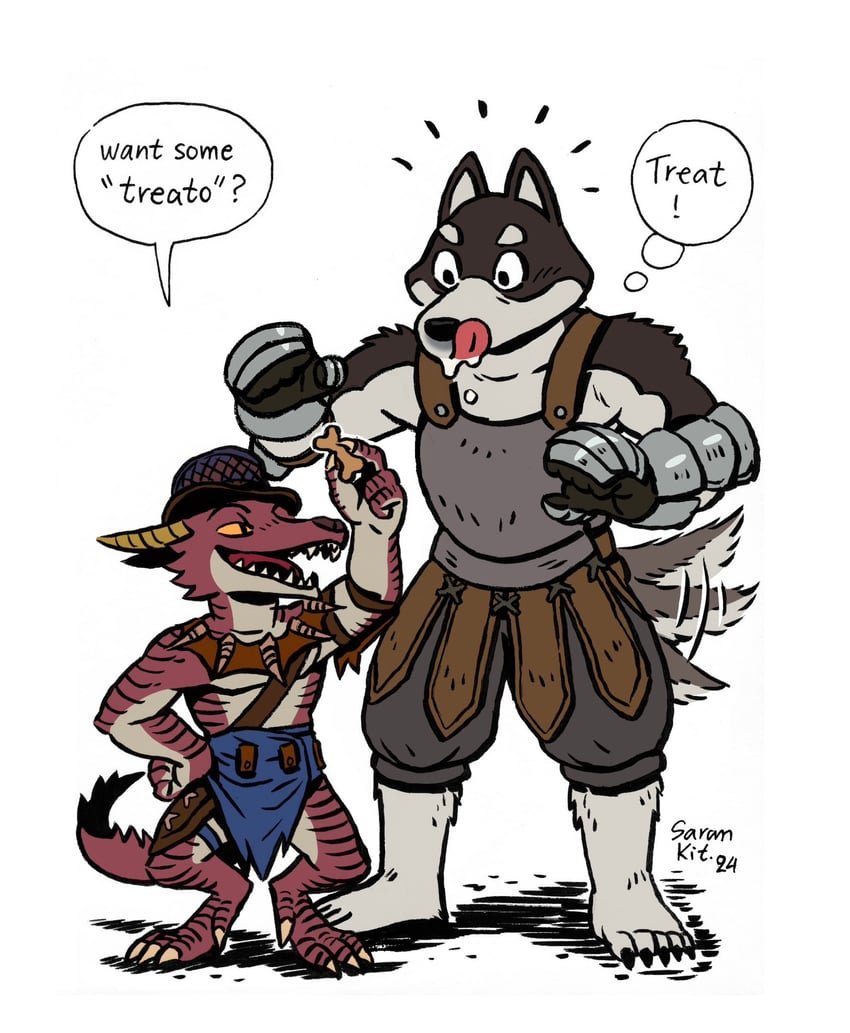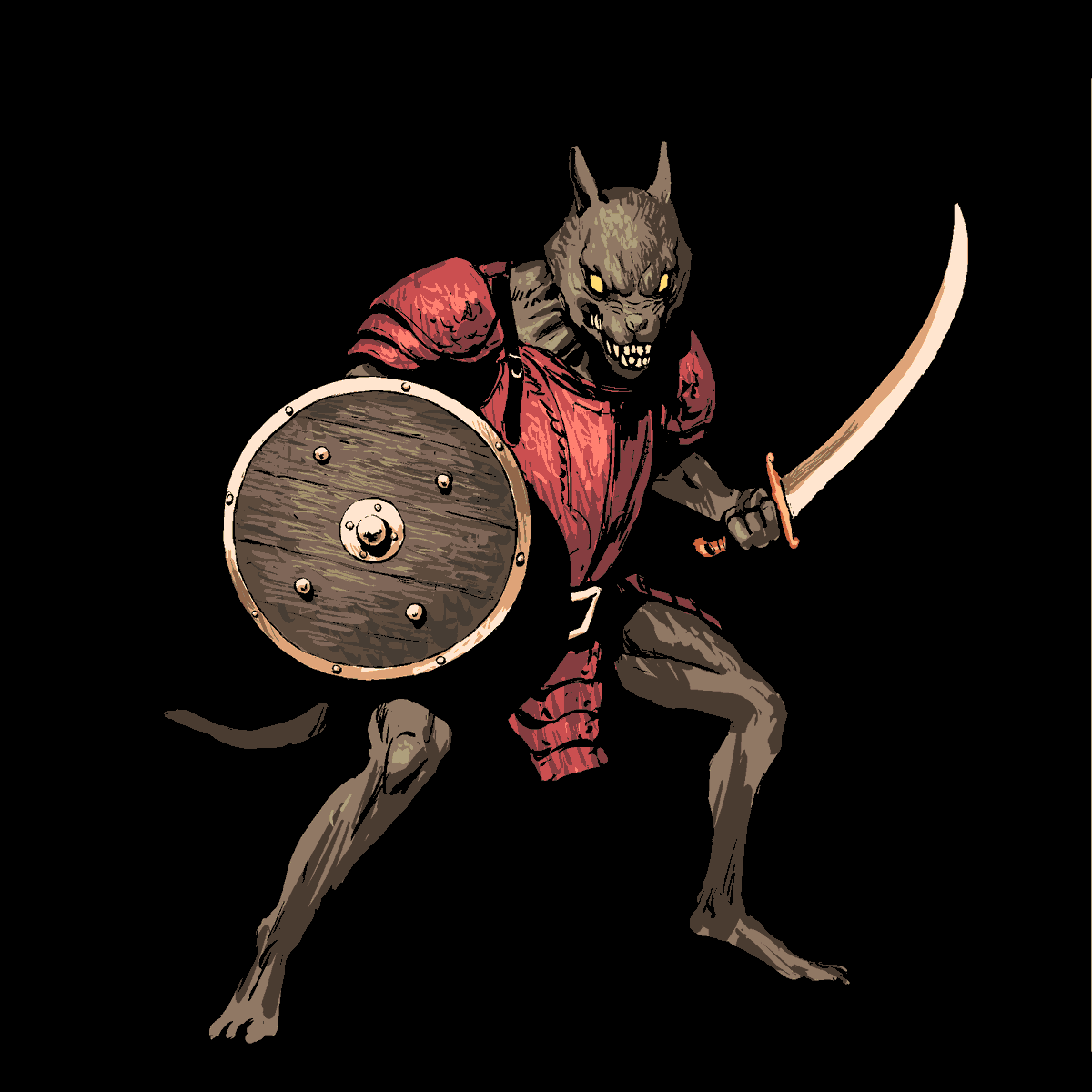In Dungeon Meshi, Kuro the kobold. Kobold are dog men.
Why is the Japanese conception of kobolds a dog whereas modern D&D depicts them as lizards?
(The answer might SHOCK you)
(...but probably won't, it's just sort of interesting.)
⤵️
Why is the Japanese conception of kobolds a dog whereas modern D&D depicts them as lizards?
(The answer might SHOCK you)
(...but probably won't, it's just sort of interesting.)
⤵️

In early editions of D&D, a kobold was "like a goblin." In one reference, they were "Doglike." When they were put into the game Wizardry, this is the feature that was latched on.
Wizardry was big in Japan. Introduced the idea of dog-men-kobolds to that audience.
+
Wizardry was big in Japan. Introduced the idea of dog-men-kobolds to that audience.
+

Later editions of D&D allow the ill defined concept of a kobold to morph into a lizard-like creature - a henchmen for the bigger dragons.
D&D is like running Smashmouth through Google Translate, then back again.
(There's an article about all this in Knock!5, actually!)
D&D is like running Smashmouth through Google Translate, then back again.
(There's an article about all this in Knock!5, actually!)
• • •
Missing some Tweet in this thread? You can try to
force a refresh










